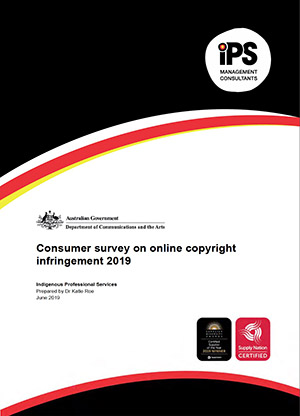
The Australian Government’s Department of Communications and the Arts released its Consumer survey on online copyright infringement 2019, a comprehensive study based on more than 2,400 responses to a survey conducted by Indigenous Professional Services for that agency from January through March of 2019. Higher percentages of consumers in all age groups are sharing more content is being shared than ever before, ranging from movies and TV programs to digital music and video games.
Legal consumption in Australia was growing. In 2015, only 51% of consumers surveyed consumed movies through legal channels, but in 2019, that percentage grew to 75%. Similarly, legal TV program consumption went from 67% to 84% during that period.
In 2019, 27% of consumers were more likely to know which content is lawful than they were in 2015 (20%), and were less motivated to access it as a result. 44% of those who reached blocked illegal sites did not persist in accessing the content on those sites, while 16% went on to find alternative illegal sites and 18% sought legal alternatives. In 2019, younger demographics had a higher percentage of infringers than older ones: 22% of those aged 25-34, versus 11% of those over 55. In 2015, over-55s made up 25%.
Counterintuitively, consumers in higher income brackets (36% of those with incomes of AU$80k-180k) and employed consumers (58%) were more likely to consume unlawful content. Illegal content is most likely to be discovered via search engines. Sports content was the most likely to be consumed illegally.
Access the report (.pdf)
View the presentation about the study (.pptx)
Read the Australian Government’s news release
Why it matters
While the numbers are encouraging, the problem of infringing consumption and piracy persists. Despite the improvements, 25% of Australian consumers still access movies and 14% access TV programming from unlawful sources.
Consumers increasingly know when a site or a content source is illegal, and they are beginning to know to avoid them. The slow process of consumer education continues; both through anti-piracy initiatives by governments and by being personally affected by actions taken by pirate Web sites.
Edit: The Motion Picture Distributors Association of Australia (MPDAA) referenced this research in January 2020 as part of a summary of the Australian film industry’s 2019 calendar year.












